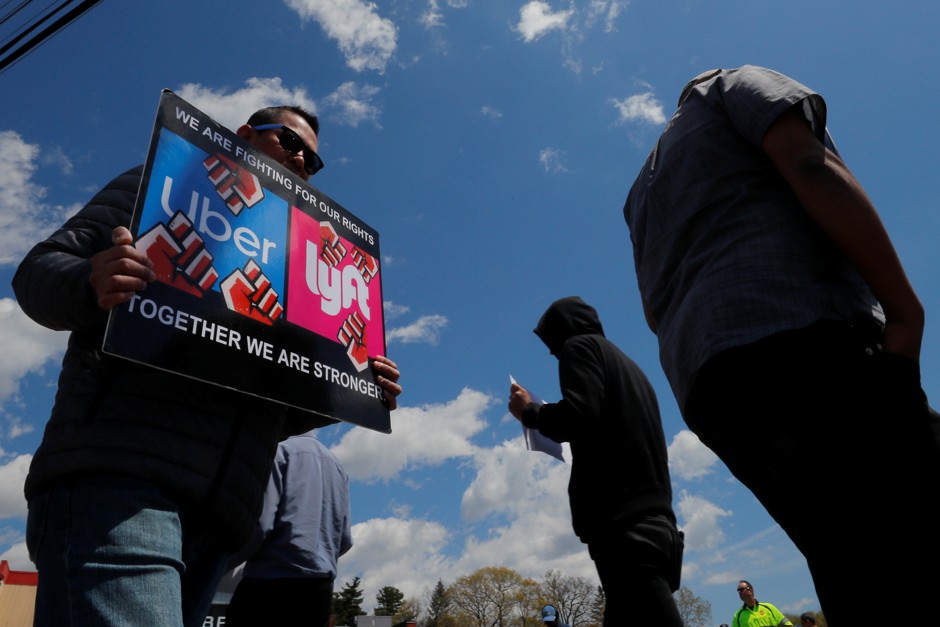
The CEOs of Uber, Lyft, and Juno (another “ride share company”) have gone into panic mode as the California legislature considers amending state law to reclassify drivers as employees rather than independent contractors. The heads of the three companies wrote a joint statement that appeared in the San Francisco Chronicle, arguing that drivers do not want to be employees, but instead prefer the “flexibility” that precarious gig work affords! The fact that the CEOs of competing companies collaborated on an op-ed is remarkable, but it shows how vulnerable they feel. Their entire business model revolves around denying workers rights and benefits, precisely because drivers are misclassified as contractors.
The other legal sleight of hand involved in their model is the “ride share” concept itself. These companies run taxi services, which look somewhat different because of the advent of mobile phone technology, but they are taxi services nonetheless. Corporate backers threw money at these companies when they were starting up, enabling them to monopolize the industry without being subject to the same regulations as taxi companies.
The model of precarious gig work is a threat to the entire working class. We should make no mistake: every single capitalist living off workers’ labor would be pleased to misclassify their workers as independent contractors—that way they wouldn’t have to pay benefits or a minimum wage.
Workers are organizing to put an end to this race-to-the-bottom business model. Back in February, New York City passed a ride share driver minimum wage of $17.22 an hour. In reality, this is equivalent to $15 an hour, accounting for the fact that drivers have to cover payroll taxes and do not get paid time off. Still, it is a major gain. When the enemy attacks, you know you are doing something right. Lyft and Juno both filed suits against the New York Taxi and Limousine Commission in an attempt to block the minimum wage law.
This progressive legislation is happening against a backdrop of increasing struggles led by drivers. In March, hundreds of drivers in Los Angeles turned off their apps for 25 hours in protest of low wages after Uber decided to reduce per-mile pay in Los Angeles County and parts of Orange County by 25 percent. The strike was spearheaded by Riverside Drivers United.
On May 8, drivers went on strike in at least 10 U.S. cities, and in locations worldwide—for example, in Melbourne, Australia, and in cities across the U.K.
These protests make it more likely that legislation benefiting drivers will be passed, and that the companies themselves will make concessions. Without struggle, there is no forward movement.
And before we start feeling too bad for the company heads who are playing the victim, we should note that Uber paid its top five executives $143 million in 2018; its CEO got $45 million. Their revenue in 2018 was $11.27 billion, with total assets of $23.99 billion. (And it’s not like they have to use that money to maintain fleets of cars…) They may act like they can’t afford to pay workers or give them the benefits they deserve, but this is just another sleight of hand.
